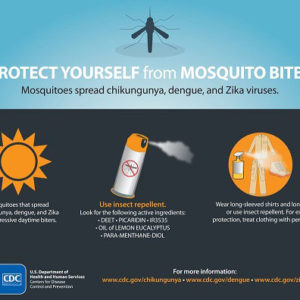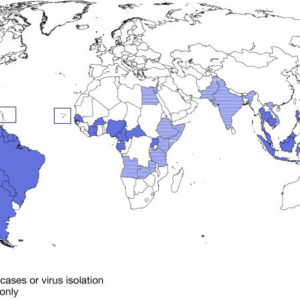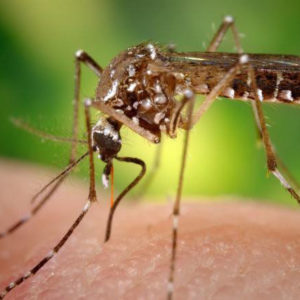History has shown that almost all of the debilitating and destructive diseases that have emerged were not predicted before they happening, but were only discovered when they were already in existence.
One such disease is the Zika virus, which emerged in Uganda in 1947. The Americas have not been without similar experiences. The people of North America will not forget the 1633 outbreak of smallpox. Nor will people in Philadelphia exist without recalling the 1793 outbreak of yellow fever. And the cholera pandemic of 1830-1851 will remain infamous because of its spread from Indonesia and the Philippines to around the world. In 1918, the Spanish flu pandemic during World War I killed 675,000 Americans. These outbreaks of diseases are only a few of the countless strains humanity has faced. There was a polio outbreak in 1952, an outbreak of Asian Flu in 1957, an epidemic of HIV and AIDS in 1980, an outbreak of cryptosporidium in 1993, and an outbreak of whooping cough in California in 2010.
Emergence and Meaning
This virus emanated from a forest in Uganda called Zika, where it was discovered in the body of a monkey. Thus it took its name from this forest and became Zika virus. These are the same mosquitoes that spread dengue and West Nile virus.
“Zika Virus has been around for a long time; it was first seen in 1947 in Uganda,” said Dr. Iain Duffy, Assistant Professor in the Department of Math and Science. “It is been known in Africa for 70 years and it is only in the last few years that it now spread in South America, and it is because of people from the United State that traveled and where bringing it back from South America.”
According to an article from the Center for Disease Control (CDC), “Its first evidence of human infection was in 1952. This was known through the result of aserological survey in Uganda,”
Although this virus has been around for more than 69 years, most Americans are unaware of it. However, with the recent re-emergence people are concerned and fearful.
According to Duffy, this fear is unnecessary.
“Thank those that get scared unnecessarily and think that it comes around from patients of people who have been seen in the press – the babies with the small heads and all the rest of it,” Duffy said. “So there is this fear factor because people have seen these patients.”
According to Duffy and the CDC website, there are about 82 cases in the United States, and they were caused by people who traveled to other countries, mostly in South America. There are no known cases in the United States transmitting the virus to another person. This is because there are so few cases in the United States and the mosquitoes that usually transfer the virus are not in the country.
The Zika virus is part of the Flavirus famil along with dengue and the West Nile virus. These two viruses have been seen in the United States and the Tampa Bay area for a number of years, yet there are not many people being infected with these viruses.
Mode of Transmission
Many are unaware of how the virus spreads from person to person and from community to community.
“I have heard the Zika virus is transmitted through sex and body fluids,” said Kenneth Kelly, a Graduate Assistant at the Cannon Memorial Library.
“There may be a case of sexual transmission, but again there is no evidence of that, it is merely spread by mosquitoes,” Duffy said.
According to a situation report by Worldaware solutions from fen. 1, 2016, “The bite of an infected Aedes Aegypti mosquito is primarily responsible for the transmission of Zika; however, infected Aedesal bopictus (Asian Tiger) mosquitoes are also known to spread the virus. The Zika virus has a quick transference rate; once an infected individual has been bitten by a mosquito that newly infected mosquito can pass the virus to several others through a bite”
Five days later, the Coast News reported that “the Aedes mosquito picks up the virus in the blood as it tries to suck the human blood which it needs for laying eggs. This virus travels from their gut through their circulating system to their salivary glands and is injected into its next human victim.”
This shows that the Andes mosquitoes can spread a strong virus after subsequent infections of humans.
Signs and Symptoms
According to the World Health Organization (WHO) fact sheet, the symptoms are similar to other arbovirus infections, such as dengue, and include fever, skin rashes, conjunctivitis, muscle and joint pain, malaise, and headache. These symptoms are usually mild and last for two to seven days.
“Zika virus is like dengue and West Nile viruses,” said Duffy. “It gives you fever, rashes, and muscle pain, but it goes away in a week or so and you don’t ever hear of people dying. I think there are a lot people scared of this virus, which should not really be because many people are infected and it has not be killing.”
Rate of Spread
This virus has gained more ground and victims since 1952 when its first evidence of human infection was known in Uganda.
According to the American Association of Science on Feb. 10, 2016, “As of 2007 there were 14 confirmed cases of human infection from Africa and Southeast Asia. By April 2007, the first outbreak outside Asia and Africa occurred.”
In 2014 the virus spread eastwards across the pacific ocean to French Polynesia then to the island, in 2015 it reached Mexico, central America, the Caribbean and south America where it has reached its pandemic level.
“I am worried about the upcoming Olympic games in Brazil since it is one of the countries that has the virus,” said Phylomen Wanjiru, a Masters Student in Education Instructional Leadership concentration. “I hope the organizers are doing everything possible to prevent the virus from spreading both to the entire national contingents and those that will come and watch the games, because it is then crystal clear that the Zika virus has come to take its own turn.”
“The Olympics in Rio de Janeiro will not be cancelled and the mosquito-borne Zika virus will not affect the games,” said Thomas Bach, the President of the International Olympic Committee in Aljazeera. “There will be good conditions for athletes and spectators at the Rio Games in August, despite the explosive spread of the Zika virus across America.”
According to the U.S. department of Health and Human Services, the rate at which the virus spreads was cause for a state of a public health emergency on Feb. 1. On Feb. 5, numerous countries were confirmed to have active transmission of the Zika virus including the Caribbean islands, much of South America, American Samoa, and Cape Verde in Africa.
As of Mar. 21, the total number of Zika virus cases in Florida was 42.
Why the Unrest?
Many countries have warned their citizens about the virus, urging them to stop travelling or having sex to help alleviate the spread.
In Jan. 2016, the U. S. Centers for Disease Control and Prevention (CDC) issued a travel guidance on affected countries including the use of enhanced precautions, and guide for pregnant women including considering postponing travel. Other governments issued similar warnings.
Other countries like Colombia, El Salvador, the Dominican Republic and Jamaica advised women to postpone getting pregnant until more is known about the Zika virus. So many countries are raising alarm about this virus, the question then is why the unrest?
This unrest may likely be due to the following. Firstly, the disease has no known cure or vaccine yet.
Tied to that, research has shown on increase in microcephaly, a neurological birth defect in which babies are born with abnormally small heads and suffer incomplete brain development, and Guillian-Barre syndrome, which is a neurological disorder in which the body’s immune system attacks part of the nervous system causing gradual weakness of the legs and arms, paralysis, and death, occur with an increase in Zika virus infections. The Zika virus has not been fully proven to be responsible for these sicknesses.
Everyone is at risk of contracting the Zika virus because it commonly spreads through a mosquito bite. What’s more, scientists do not know much about the virus as a whole.
The best ways to handle this virus is to intensify research into creating a vaccine and practicing prevention to ward off mosquitos
“Since it is merely spread by mosquitoes, just like with other mosquito borne diseases, you just have to take precautions when you go into area where there may be mosquitoes,” said Duffy. “Wear long sleeves and spray yourself with repellent.”
“A permethern-treated uniform that is properly worn, Deetor Picaridian applied to your skin, and a permethrin-treated bed net will help,” said Teresa Dadez, Director of the Health and Wellness Center.







